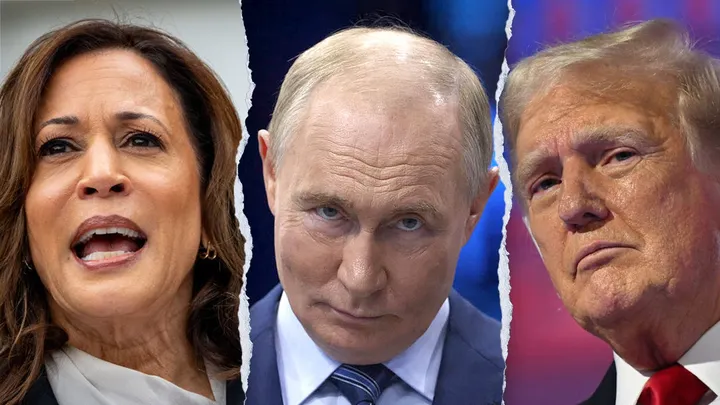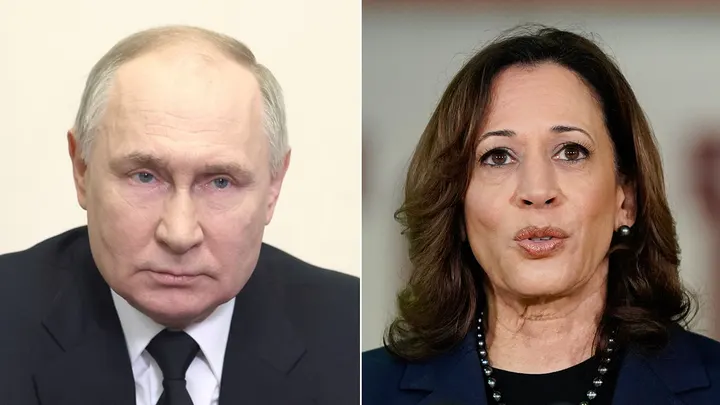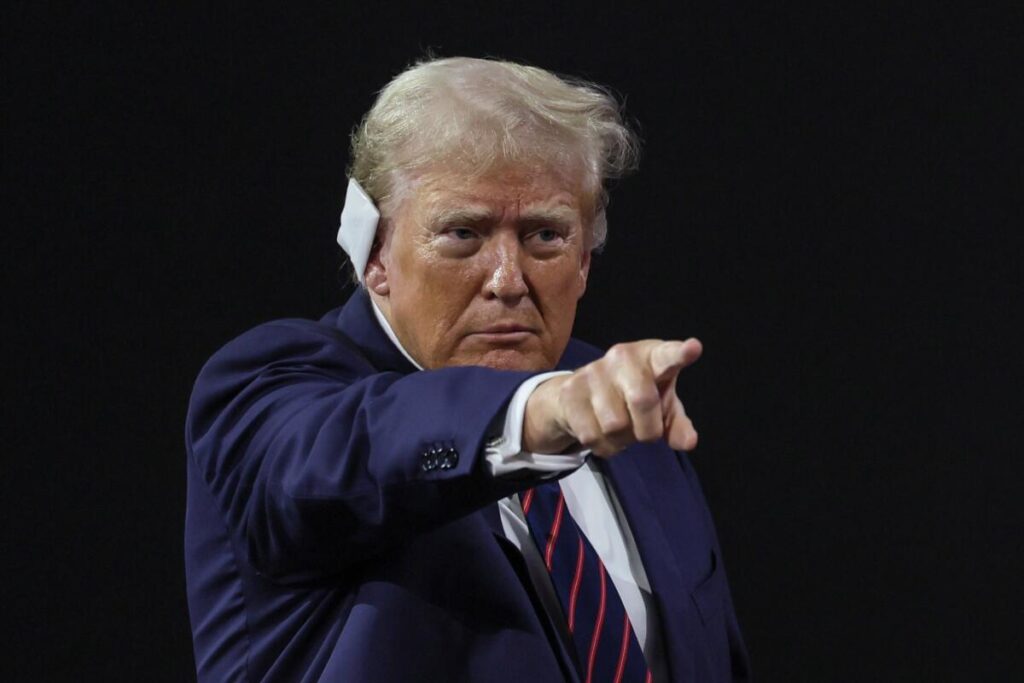Two weeks ago, a U.S. intelligence official commented on the recent Election Security Update issued by the Office of the Director of National Intelligence (DNI), suggesting that Russia prefers former President Trump to win the presidency in November. As a former Defense Intelligence Agency officer specializing in Russia and Putin, I completely disagree. This pronouncement, like many others made by spy agencies, is dead wrong. But now that Biden is out of the race, whom would Vladimir Putin favor, Trump or Vice President Kamala Harris?
Kamala, of course. Here’s why.
Putin is almost certainly terrified of another Trump presidency, but Kamala is not so much. The Russians have assessed her to be vapid, unintelligent, and incompetent, and believe she can be unbalanced and manipulated.
The Russian media, which is almost exclusively under state control, speculated on Monday whether Harris’s “cackling and giggling,” “nervous, out-of-place clapping,” “exaggerated gesticulation,” nonsensical statements like “the passage of time,” and “strange” facial expressions are a result of a psychiatric disorder or being constantly “inebriated.”
Report on Kamala Harris’ vetting of potential running mates: four standouts
Russian analysts expect Harris to continue Biden’s policies that aim to transform America from a society based on meritocracy and competence to one that is hyper-focused on forced equality and government regulation, typical of a socialist system. Since socialism destroyed the USSR, Moscow believes that someone like Harris leading America on a path of destruction is beneficial for Russia, which views the U.S. as its top security threat.
Harris, like Biden, who called Putin derogatory names such as “war criminal,” “killer,” “murderous dictator,” and “pure thug” — indicating that Putin’s actions got under his skin — can also be rattled by the former KGB operative, according to the Russians. Harris previously slammed Putin, accusing him of brutality and being responsible for the death of Alexei Navalny, his political opponent.

In contrast, former President Trump, a talented statesman and astute businessman, always acted respectfully towards Putin, realizing the Russian leader isn’t intimidated by words. Instead, Trump pursued the most formidable anti-Russia policy since former President Reagan, taking actions to counter Moscow’s anti-U.S. strategy.
This analysis underscores the complexities of international political dynamics and the varied perceptions of leadership capabilities and strategies on the global stage.
In December 2019, former President Trump founded America’s first entirely new armed service since 1947, the U.S. Space Force. This came 18 years after Putin established Russia’s space force, whose mission includes attacking U.S. satellites, essential for every aspect of war fighting — missile warning, navigation, reconnaissance, targeting, command-and-control, and precision strike efforts. The primary mission of the U.S. Space Force is to safeguard American spacecraft and target enemies’ space assets with offensive operations.

In September 2018, Trump authorized offensive cyber operations against adversaries, enabling the U.S. military to ramp up cyber attacks targeting Russia’s power grid. This was a direct retaliation against Russia, which had been hacking American networks for over two decades, compromising every major federal agency, including the electrical grid and nuclear facilities.
Trump also took significant steps to modernize the U.S. nuclear arsenal. In 2018, he ordered the development of a low-yield, nuclear-armed, sea-launched cruise missile. This move was a direct counter to Putin’s “escalate-to-de-escalate” strategy, which involves detonating a low-yield tactical nuclear warhead in combat operations to deter U.S. intervention, such as in Ukraine. The Biden-Harris administration, however, canceled Trump’s program, leading to heightened concerns every time Putin issues a nuclear threat.
In 2018, a small group of U.S. forces in Syria faced an attack by hundreds of Bashar al-Assad loyalists, including Russian Wagner group members. Some 300 attackers, including Wagnerites, were killed by the U.S. forces with the help of local allies. There was no direct retaliation by Putin. Similarly, Trump directed U.S. forces to eliminate Qassem Soleimani, the commander of the Islamic Revolutionary Guard Corps, in January 2020, leading to the Ayatollahs placing Trump on their assassination target list.

Trump also signed a ban on Kaspersky Lab, a Moscow-based anti-virus software firm owned by former KGB officer Eugene Kaspersky. This firm was suspected of being a Russian cyber espionage platform. Trump’s decision highlighted his understanding of how shysters like Putin operate.
Contrast this with the Biden-Harris administration, which sought to negotiate with Iran over its nuclear program, a move seen as a sign of weakness by critics. When it comes to Ukraine, Trump has claimed that he would settle the war “in 24 hours” if re-elected, sparking concerns that he might concede to Putin’s demands. However, Trump’s stance is backed by the notion that he could potentially intimidate and outsmart the Russian dictator.
Unlike Biden, who has been criticized for making America bear the burden of funding Ukraine, Trump is likely to push NATO members to contribute more to their security. He has consistently advocated for stronger NATO military capabilities, which were perceived to have weakened during the Obama administration.
In the eyes of Putin, the choice between Trump and Harris is clear. Putin is not afraid of grand declarations; he fears a strong NATO and a resolute U.S. leader who can command respect and action from allies. Trump’s track record shows he is more than willing to stand up to Putin and protect U.S. interests aggressively, making him a formidable opponent on the global stage.
